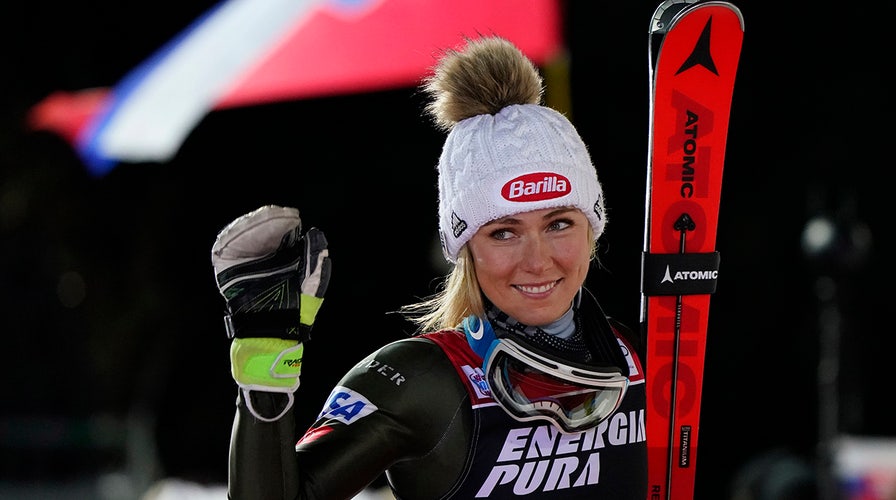Fox News Flash top headlines for Jan. 5
Fox News Flash top headlines for Jan. 5 are here. Check out what's clicking on Foxnews.com
Even Mikaela Shiffrin enjoyed Petra Vlhova’s frenetic run which ended the American’s six-race winning streak in World Cup slaloms on Saturday.
“I am not really the athlete who has this killer instinct or that winning spirit above anything else,” Shiffrin said. “There are some races where I am not winning and I think, maybe I should be more mad.”
Saturday’s slalom, on a hill where she had won four times in recent years, was one of those races.
With Shiffrin leading the final run, Vlhova attacked the Crveni Spust course from top to bottom and the Slovakian skier won the first event of 2020 by a big margin of 1.31 seconds over three-time overall champion Shiffrin.
“Watching her second run, I was like ‘That was nice skiing, this is pretty nice to watch,'” said Shiffrin, who had won all slaloms since Vlhova triumphed in Flachau, Austria, almost a year ago.
“Obviously I love to win but when I saw her come to the finish, I was like ‘shoot!’ but also ‘ah, that’s really cool.’ Maybe I should be a little more mad but that’s not where I am as an athlete,” she added.
Saturday’s result left Shiffrin one win short of her personal best of seven straight slalom wins, and two short of the record for most consecutive victories in the discipline, set by Vreni Schneider in 1989 and matched by Janica Kostelic in 2001.
Shiffrin once won 12 straight slaloms she competed in, but that series between February 2015 and December 2016 was interrupted by five races she had to sit out with a knee injury.
Having her winning series stopped this time didn’t hurt Shiffrin too much and the four-time slalom world champion was quick to take the positives.
After her opening run with a costly mistake halfway down the hill, she skied more aggressively and had a better timing in the final run.
“Winning is kind of the point of this sport, but at the same time I am more happy if I am able to execute some really good skiing,” Shiffrin said.
Even after a record 43 wins in World Cup slaloms and 64 overall, Shiffrin does not expect to win races.
“Especially when I have this kind of competitors, I feel very grateful for the races I am able to win,” she said.
Shiffrin has the potential to win every race she starts in but, with all the victories and records, expectations on her have been mounting in recent years.
Some media reports called it “a defeat” after Shiffrin finished third in her “home” giant slalom in Killington, Vermont, in November.
And when Shiffrin hinted before the season that she might add a few more speed events to her schedule, it was reported that winning the downhill globe was now her goal.
“The media has done a great job of building her into something that’s superhuman,” said Mike Day, Shiffrin’s head coach. “She has always managed expectations well. She embraces the process of getting better.”
However, it’s not just the expectations from outside, as sometimes her team sets the bar too high as well.
Shiffrin had to opt out of the speed races in Val d’Isere, France, in December as she didn’t feel ready, and she still wasn’t sure whether she will start in a downhill and an Alpine combined event in Altenmarkt-Zauchensee, Austria, next weekend.
“We all are victims of it at times, thinking she can do anything on any day,” Day said. “She is amazing, but she is human. Everybody needs to remember that.”

